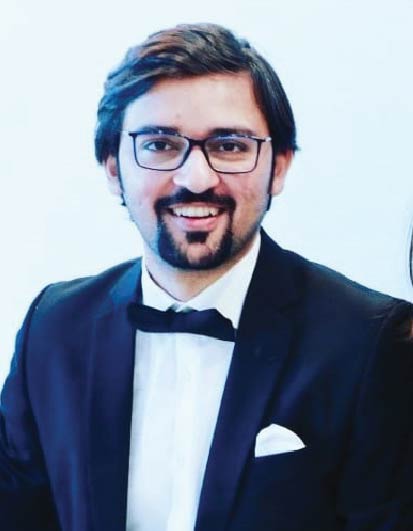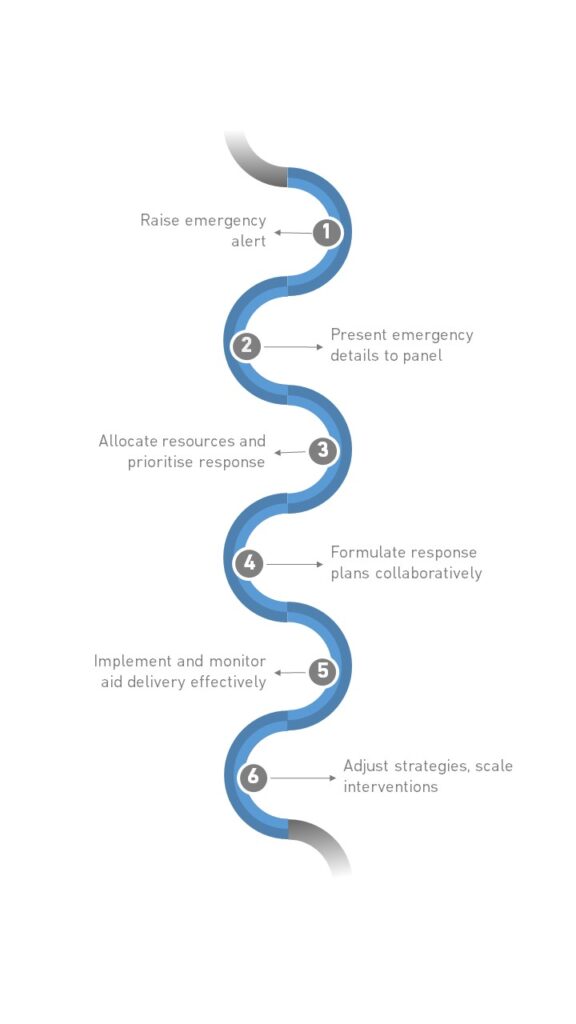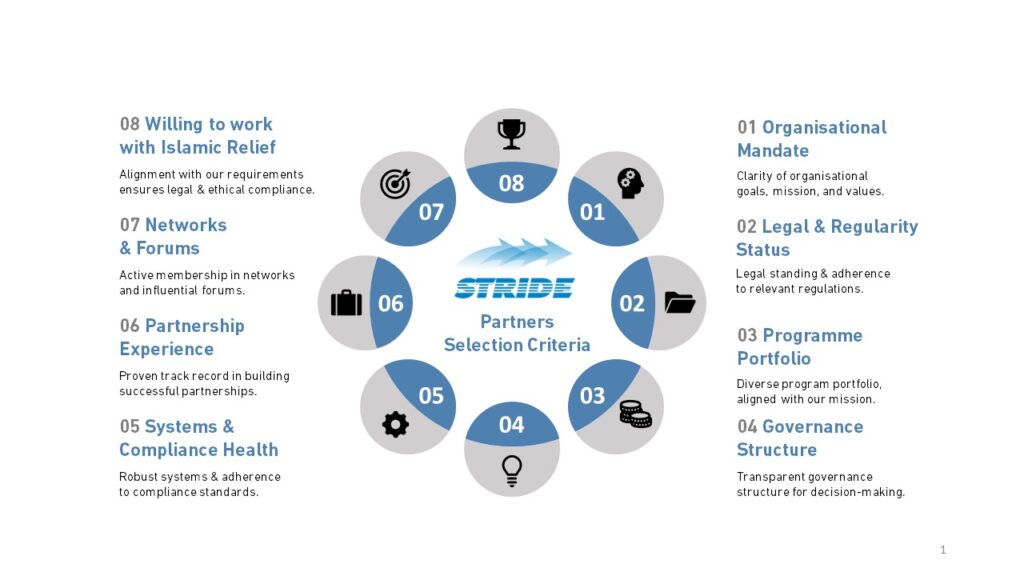
In the ever-evolving landscape of humanitarian aid, local partnerships are increasingly crucial. Here, Muhammad Qasim Ali, communications coordinator for the STRIDE project, explains how Islamic Relief is joining hands with local organisations to reach more people worldwide.
Islamic Relief cultivates partnerships through various avenues, including the Strengthening Response Capacity and Institutional Development for Excellence (STRIDE) project. The multi-year, multi-country project is designed to protect the lives and dignity of at-risk communities through institutional development and partnerships.
I want to share how Islamic Relief identifies local partners in countries where we don’t already operate.
What drives Islamic Relief’s commitment to local partnerships?
Our commitment is rooted in recognising that local actors are often better positioned to respond to crises as they better understand the local context, language, and cultural dynamics than international humanitarian organisations like ourselves.
This aligns with our commitments to global initiatives, like the Grand Bargain and Charter for Change, promoting ‘localisation’ for an equitable and effective humanitarian system.
Why would Islamic Relief want to work in countries where it doesn’t usually?
Islamic Relief is a global organisation with a presence in more than 30 countries… but there are a lot more than 30 countries on Earth, and many of those where we aren’t currently working still have considerable humanitarian needs.
Here’s why we choose to engage with local partners in these ‘non-Islamic Relief presence countries’:
• Addressing cross-border crises: Disasters and crises often transcend national borders, affecting vulnerable populations in areas where we lack a physical presence. We can respond effectively to these cross-border challenges by collaborating with local organisations.
• Leveraging local expertise: Local partners possess invaluable knowledge of their communities, including language, culture, and context. This local expertise ensures our responses are precisely tailored to the unique needs on the ground.
• Empowering local capacity: Through strategic partnerships, we empower local organisations to respond to crises, such as conflict or natural disasters, and contribute to long-term development. This approach not only aids immediate Relief but also fosters sustainable change.
• Global humanitarian commitment: Engaging with non-presence countries reflects our commitment to global humanitarianism. It’s a tangible demonstration of our dedication to making a meaningful impact worldwide.
Does Islamic Relief only contact local organisations after a disaster?
One crucial lesson learned from our responses to the Philippines Cyclone Haiyan in 2013 and the Nepal Earthquake in 2015 is the importance of establishing relationships with local actors well in advance of emergencies.
With the STRIDE project, we proactively identify local partners in high-risk countries using comprehensive data sources, including IPCC ratings, Inform Risk Index, German Watch, and our strategic priorities. This initiative is centred on enhancing the preparedness of selected local organisations through capacity strengthening and institutional development.
If Islamic Relief decides to offer support in a country where it doesn’t normally work, what happens next?
We have a clear process in place. If we’re already working with local organisations in that country, we reach out to them. We provide them with technical support and guidance, and they carry out the work on the ground.
If we don’t have any existing partnerships there, we conduct assessments to find suitable local organisations to collaborate with. In urgent situations, we might even send our own personnel to help kickstart the response.
No matter the scenario, our goal is to ensure a well-coordinated and effective response by tapping into local knowledge, expertise and resources. It’s all about working together to make a real difference on the ground.
Who makes these decisions?
The decision-making process for responding to emergencies or supporting projects in non-Islamic Relief presence countries is a collaborative effort at Islamic Relief.
Led by the Disaster Risk Management Department, it involves an emergency panel comprising colleagues with expertise in finance, programming, and communications, among other areas. Additionally, this panel includes individuals such as the head of the relevant regions and the International Programmes Director.
The panel’s role is to comprehensively evaluate the situation, assess needs on the ground, access, identify gaps in support, review fund availability, and consider media engagement. This collaborative approach ensures well-informed decisions drawing from diverse perspectives and expertise.
What are the steps from first deciding to get involved to eventually delivering aid?

The process of delivering aid in countries where Islamic Relief doesn’t have a presence involves several key steps shown in the diagram:
• Emergency alert: Islamic Relief field offices, including our local partners, raise an emergency alert.
• Presentation to the emergency panel: The Disaster Risk Management Department presents an overview of the emergency to the Emergency Panel, including needs assessment, options for intervention, challenges, safety, and security.
• Decision-making and emergency fund allocation: The Emergency Panel collectively decides whether Islamic Relief will respond and the nature of the response and emergency fund allocation. In some cases, the disaster response surge team is activated if needed.
• Planning and coordination: Islamic Relief develops a response plan and coordinates with partners and stakeholders to agree on objectives and associated timelines.
• Implementation and monitoring: Aid delivery begins, and ongoing monitoring ensures effectiveness and reaches the affected population.
• Adaptation and scaling up: Islamic Relief adjusts response strategies and scales up interventions to address emerging needs.
What’s the process of selecting partners in non-Islamic Relief presence countries under the STRIDE project?
We begin by issuing expressions of interest in high-risk priority countries, inviting applications from local organisations in a pre-emergency context. We then conduct a rigorous due diligence process to shortlist suitable local partners, eventually signing a two-year memorandum of understanding (MOU) with them.
The duration of this process can vary due to factors depicted in the chart below.
Once selected, our local partners perform capacity self-assessments to pinpoint their specific needs and challenges. In response, STRIDE provides capacity-strengthening grants and technical support to enhance their response capacity and organisational development.
The following illustration shows STRIDE’s partner selection criteria.

Which non-Islamic Relief presence countries does STRIDE build local partnerships? Why were they chosen?
Currently, we’ve partnered with local organisations in countries including Nigeria, which grapples with frequent flooding and insecurity; the Democratic Republic of Congo, subject to political instability and disease; and Cambodia, which faces environmental challenges.
These countries were chosen based on hazard profiles, vulnerability to emergencies, and low levels of preparedness to deal with them.
Local partners bring local knowledge, invaluable expertise, networks, and cultural insights. This community-focused approach ensures quicker, more efficient humanitarian aid and development delivery.
What advantages does partnering offer compared to setting up Islamic Relief offices in these countries?
Islamic Relief chooses to work with local partners instead of setting up its own office in a new country for several reasons.
• Collaboration with local experts strengthens our global community-focused approach.
• Commitment to the Grand Bargain and Charter for Change drives localisation support.
• Compliance with humanitarian principles ensures added policy and programmatic value.
• Cooperation with local partners optimises resources for effective, sustainable development.
Local partnerships are particularly beneficial because they allow us to respond promptly to unfolding emergencies with enhanced outreach, a process that establishing an office might not be suited for. Even in countries with offices, we continue to work closely with local partners to maximise our impact and address specific community needs.
How does all this fit in with the STRIDE project, and how it supports local partnerships?
Our global strengthening STRIDE project empowers local organisations with the skills and knowledge to respond effectively to crises. Through training, resources, and support, STRIDE ensures that local actors can play a significant role in humanitarian preparedness and response.
STRIDE emerged as a dedicated programme aimed at forging partnerships and bolstering the capabilities of local organisations outside of the partnerships formed during emergency responses. It stands as Islamic Relief’s most extensive and dedicated investment in identifying local organisations poised to benefit from an organisational capacity-strengthening approach, coupled with an emphasis on enhancing knowledge of humanitarian standards.
This approach has empowered Islamic Relief country offices and local organisations to be better prepared for the next emergency, fostered stronger connections with other entities in the humanitarian sector and local authorities, and positioned them more effectively to attract funding from a diversified pool of donors.
Islamic Relief’s commitment to local partnerships is a testament to our dedication to making a meaningful global impact. Through initiatives like the STRIDE project, we empower local actors and strengthen humanitarian responses to save lives in hard-to-reach areas. It’s a model of cooperation that exemplifies the transformative power of working together for a better world.
Help us to empower local organisations to better support communities in need. Together, we can create a more inclusive and responsive humanitarian sector. Donate now.
BROWSE OTHER OPINIONS
FEATURED OPINIONS
- Türkiye-Syria Earthquake: A week of sheer horror but also humanity at its best
- Together we can end global hunger for good
- Why the searing accounts of suffering in Srebrenica cannot – must not – be forgotten
- Davos Diary – Islamic Relief at the World Economic Forum
- Islamic Relief helps us children to push for better protection in Mali
MOST POPULAR TOPIC
View More









